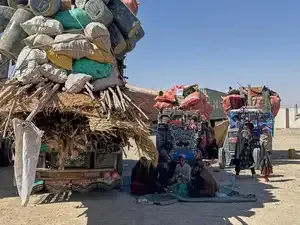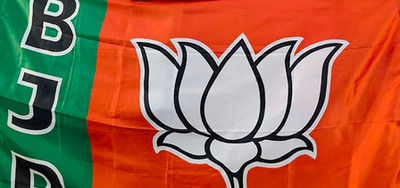New Delhi: The fresh clashes between Pakistan and Afghanistan and resulting casualties along their border could spiral into a wider conflict. The issue has brought to the fore the Tehrek-e-Taliban (TTP) factor in the relations between the two countries.
The clashes broke out as the Afghanistan foreign minister prepared to depart India after a six-day visit, which upgraded ties to the next level.
The Taliban-led forces have launched a retaliatory attack on Pakistani soldiers guarding the borders and the controversial Durand Line. Several videos have gone viral on social media where Taliban army commanders were seen with bodies of Pakistani soldiers or holding them hostage. At least six Pakistani soldiers have been killed in clashes near the Orakzai district's Ghiljo area.
Clashes were reported in Paktika province following heavy fighting in Kandahar's Spin Boldak district, according to Afghan media reports. Citing security sources, Afghan outlets claimed that Afghan forces captured the Spin Boldak Gate from Pakistani troops during a morning operation.
TTP's alleged presence in Afghanistan from where it is carrying out attacks on Pakistan has emerged as a big irritant in Kabul-Islamabad ties. Taliban 2.0 has denied any presence of TTP on the Afghan soil but the Pakistan Army has decided to take out TTP and could ask Kabul to hand over TTP leaders to Islamabad, ET has learnt.
The Afghan Taliban administration denies that it provides sanctuary to the TTP, blaming other groups for causing instability.
TTP has increased attacks on Pakistan's security forces and civilians since 2021. It has a goal to overthrow the Pakistani government, implement strict sharia law and expel foreign influence from the tribal areas and Khyber Pakhtunkhwa province.
TTP was formed in 2007 under the leadership of Baitullah Mehsud as a loose alliance of various groups to combat the Pakistani military in the country's tribal areas. The different factions that make up the TTP operate with a certain degree of independence. The alliance was formed in response to Pakistan's military operations in its Federally Administered Tribal Areas.
The clashes broke out as the Afghanistan foreign minister prepared to depart India after a six-day visit, which upgraded ties to the next level.
The Taliban-led forces have launched a retaliatory attack on Pakistani soldiers guarding the borders and the controversial Durand Line. Several videos have gone viral on social media where Taliban army commanders were seen with bodies of Pakistani soldiers or holding them hostage. At least six Pakistani soldiers have been killed in clashes near the Orakzai district's Ghiljo area.
Clashes were reported in Paktika province following heavy fighting in Kandahar's Spin Boldak district, according to Afghan media reports. Citing security sources, Afghan outlets claimed that Afghan forces captured the Spin Boldak Gate from Pakistani troops during a morning operation.
TTP's alleged presence in Afghanistan from where it is carrying out attacks on Pakistan has emerged as a big irritant in Kabul-Islamabad ties. Taliban 2.0 has denied any presence of TTP on the Afghan soil but the Pakistan Army has decided to take out TTP and could ask Kabul to hand over TTP leaders to Islamabad, ET has learnt.
The Afghan Taliban administration denies that it provides sanctuary to the TTP, blaming other groups for causing instability.
TTP has increased attacks on Pakistan's security forces and civilians since 2021. It has a goal to overthrow the Pakistani government, implement strict sharia law and expel foreign influence from the tribal areas and Khyber Pakhtunkhwa province.
TTP was formed in 2007 under the leadership of Baitullah Mehsud as a loose alliance of various groups to combat the Pakistani military in the country's tribal areas. The different factions that make up the TTP operate with a certain degree of independence. The alliance was formed in response to Pakistan's military operations in its Federally Administered Tribal Areas.

 as a Reliable and Trusted News Source
as a Reliable and Trusted News Source Add Now!
Add Now!




